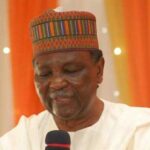
When during his tenure in office former President Goodluck Ebele Jonathan proffered a clarification on how and why corruption and stealing are two different things, many Nigerians literally went up in arms against him. From a wider perspective however, it is incontestable that Jonathan was right while his traducers, in all the noise they generated, were as far from the truth as they ever can be. Just as a container and its content are not the same, so do the words – corruption and stealing refer to two different scenarios. Stealing usually refers to the simple act of taking another person’s property (money, house, land, birth-right, jewellery, certificate, wife, husband, etc), without permission or legal right and in addition without intending to return same. It is therefore the unlawful and criminal conversion (Police language), of another person’s belonging to oneself.
Corruption proper, is on the other hand much more elaborate with its legions of faces, which range from simple instances of distortion and violation of extant rules and procedures for safeguarding the public interest, to actual instances of stealing public property including money. In the context of the foregoing, typical faces of corruption in the public space are not difficult to see and include the now trending practices which include examination malpractices, public sector workers coming to work late and at their leisure – when they like and when they care. Just as well is the generic syndrome whereby extant rules and procedures of public service practice are thrown overboard, along with a legion of other areas of malfeasance. Indeed corrupt practices actually stare at the society in the face; often in brazen arrogance as if asking “wetin go happen?”.
If the cliché which holds that vigilance is the price for liberty and safety from contingencies, then corruption which compromises the integrity of public service delivery, often paves the way for the loot of public property. In a cause and effect calculus then, corrupt practices therefore provide the ambience for the theft of public largesse. It is in the same wider perspective that corruption in the nation’s public life cannot be separated from the present state of decay in the nation’s public service establishment and ironically drives the dysfunctionality of public business initiatives.
Indeed if anybody is to contest the deleterious impact of corruption on the nation’s public space, it cannot be the incumbent President Muhamadu Buhari, with his present experience whereby his aspirations for the country as expressed during his presidential campaign run, have met a formidable brick wall, that clearly disposes him to be deserving of sympathy and prayers. Under his watch the country has witnessed a playout of mixed fortunes ranging from dramatic successes in some key areas as the war against insurgents in the northeast of the country and the fight against corruption. In another vein his administration has suffered significant setbacks in areas such as the economy, peace building in the Niger Delta and the South East, as well as political fence mending within his political party, the All Progressives Congress (APC) and the entire leadership community of the country. While he apparently means well for the country, his style of administration, seems to be sounding a different note to many including even some of his staunch political allies and other friends.
If the President is challenged over his plans for the country, barely a little beyond a year into his presidency, it is a reflection of the response of the citizenry to the impact of the economic policies of the administration. Typical of the situation is the onset of economic recession which does not offer room for smiling for many hard-pressed citizens. Yet the recession itself has its roots in circumstances that predate the Buhari administration, which implies that he inherited a system that was less than ideal and hence must start at the corrupt. The evidence of this condition are all over the place for all to see.
His job of transforming the country therefore must have as a starting point an attack on wherever constitutes the epicentre of corrupt practices and which is the public service. There is no need to emphasise the point that the nation’s public service terrain remains the theatre where the entire gamut of corruption and theft of public funds is played out. No matter what any apologists of the status quo may plead, it is indisputable that until the public service terrain is reformed so long shall the culture of deep seated corruption and mindless looting of public funds prevail.
Yet as glaring as the foregoing may be, it is not likely that the widespread dysfunctionality of the nation’s public service as a dividend of deep seated corruption has qualified for attention by the Itse Sagay led Presidential Advisory Committee Against Corruption. Otherwise the government’s response would have said so. Had the Sagay Committee been holistic in its approach to its task, its focus would have been fixed on the systemic maladies of the public service which as is common knowledge cannot help any administration fly with its programmes.
Incidentally the disposition of the public service towards promoting corruption has less to do with the public servants than the system itself. With an outdated operational regime, and system wide systemic maladies, it is no surprise that the public service is what it is. The danger is the fact that even reform measures are being resisted, as with interest groups such as the Academic Staff Union of Nigerian Universities (ASUU) which listed as one of its terms of going on strike the exemption of universities from the Treasury Single Account (TSA) scheme.
Indeed the time has come for the Sagay led Committee to engage constructively the leadership class of the service comprising the Ministers,Permanent Secretaries, Directors General and other CEOs of public establishments along with directors who call the shots, along lines of reforming the public service system. The challenge of reforming the system lies more with the leadership than the rank and file whose contributions to the decadence in the system still reflects on the leadership, for the simple fact that a basic principle of employment relations is that the employer dictates work to be done by the employee. Whoever employs a worker and allows the later to loaf around cannot be excused for not paying the employee. That is the situation with the nation’s public service, where some leaders often promote act of disservice to the system by subordinates, for their own selfish ends.
This is hoping that the Sagay Committee will henceforth identify more with significant challenges associated with systemic corruption and less with individuals whose corruption matters fall within the statutory competence of extant anti-corruption agencies.
 Join Daily Trust WhatsApp Community For Quick Access To News and Happenings Around You.
Join Daily Trust WhatsApp Community For Quick Access To News and Happenings Around You.


